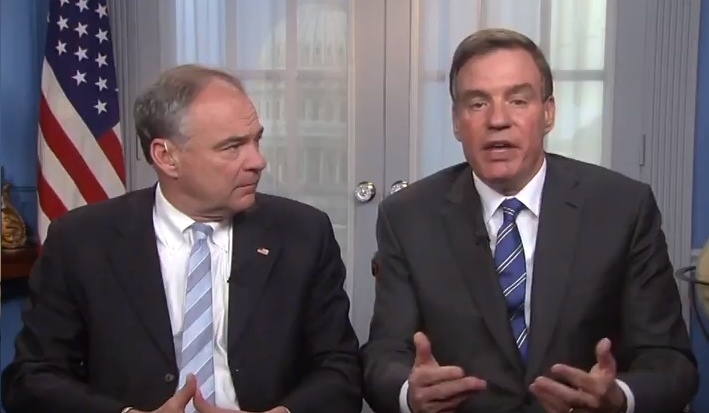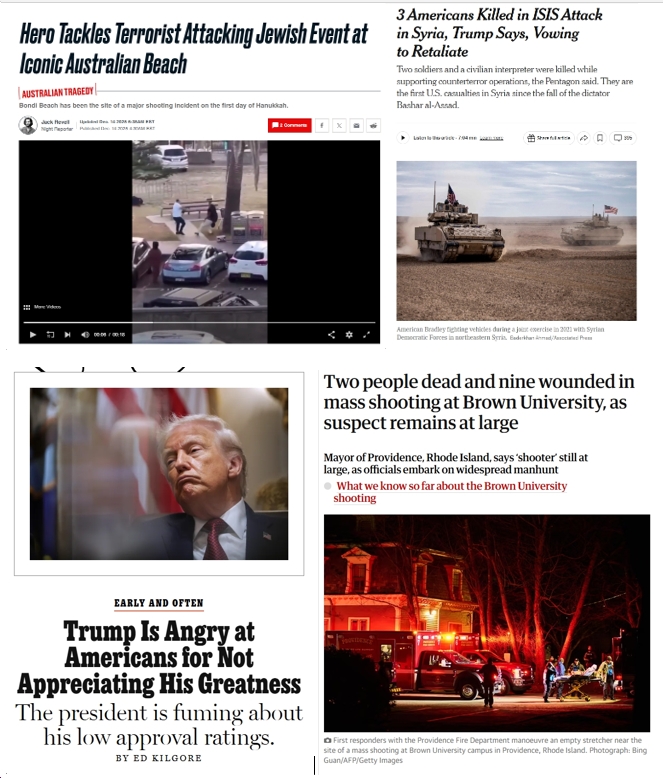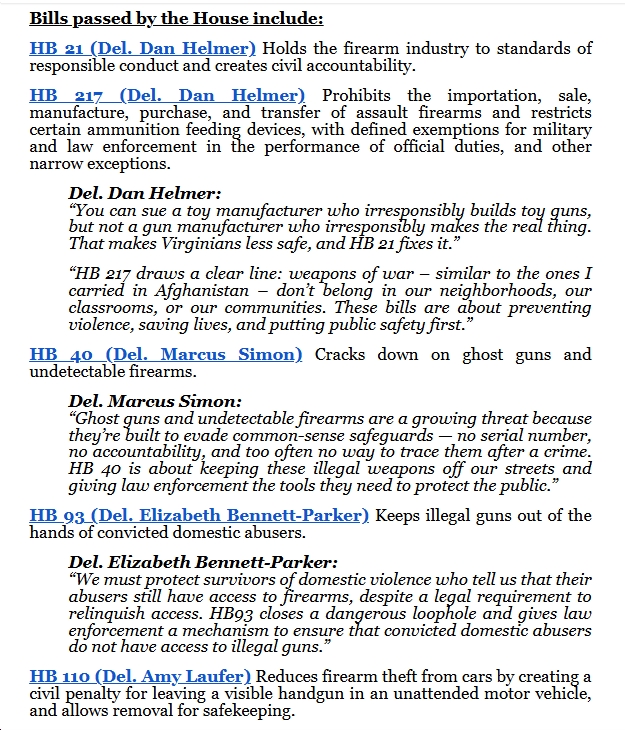See below for a powerful, emotional speech – video and transcript – by Sen. Tim Kaine, delivered last night on the floor of the US Senate, about the murder of school children and teachers in Uvalde, Texas. It is WELL worth watching!
“I rise to just share candid emotions about yesterday’s tragic shooting of school children two days from the end of the school year in Texas – little ones and two teachers and others injured. And this is rough, I don’t have any notes, because I’m really emotional about it. These shootings kind of give me PTSD, I gotta admit. I was the mayor of Richmond and our city had the second highest homicide rate in the United States. And at a much younger period in my life, I found myself going to too many funerals and too many wakes and maybe the most memorable, crime scenes. And then also homicide victims, family support group meetings in church basements in my city.
Then I got to be governor of Virginia. And in April of 2007, my wife and I landed in Japan leading a trade mission and went to a hotel and immediately got a phone call saying that there was a shooting underway on the campus of Virginia Tech University and I should turn on CNN, which I did in Japan. And as I saw the events unfold, I said take us right back to the airport; we had flown 14 hours, we were in a hotel for about an hour, we went right back to the airport and we flew all the way back home to what was the worst day of my life, trying to comfort 32 family members who had lost kids or their spouses who were faculty members. And that process went on for years in the days right after the horrible tragedy, then commissioning a study about what went wrong and then trying to find an appropriate settlement with these families that would honor their loved ones. I had to deal with state police officers and others – hardened, hardened law enforcement veterans who when they walked into the classrooms at Virginia Tech to find carnage and on each body a cell phone ringing because a parent had seen it on television and wanted to call to make sure it wasn’t one of their children who had been killed and and my law enforcement officers talked about how those rings that would never be answered, just haunted them, haunted them.
And so when there are these shootings at a school at a nightclub, at a concert, in a grocery store, in a church, in a synagogue, I just I feel like I’m back in April of 2007 experiencing those emotions for the first time. And I was analyzing my own emotions last night, why have I not been able to reach a point of more, I don’t know, emotional equilibrium about this after. And I realized that the reason was that my emotional reaction, that’s kind of a PTSD thing, is not just because of the shootings, not just because of the deaths, not just because of the promising lives cut short. It is compounded by a realization that here in this body we’ve done nothing. I mean, it would it would be bad enough to experience the violence and be reminded of that most painful time in my life.
But to experience it as a U.S. senator as a member of a body and to say well, what have we done? We didn’t do anything at the federal level after Virginia Tech and we didn’t do anything after Pulse and we didn’t do anything after Las Vegas and we didn’t do anything after Sandy Hook and we didn’t do anything after one tragedy after the next. And that compounds. And in some ways that is the thing that makes the emotional reaction a reaction that is as fresh today as it was in April of 2007. It’s a wound that can’t heal until we do something to heal the injury, to heal the problem.
I was thinking about this last night, and I was trying to you know, what’s some wisdom that I can derive to make me feel less down and less despondent. And I just thought of two things that I wanted to share. One is a a spiritual insight and then the other is a practical reason not to lose hope. So a spiritual insight. A few years ago, Pope Francis was kicking off a year-long effort to encourage revitalization of parish life, not the life of the big universal church but the life of parishes, and he challenged parishes. But this challenge could go for people and it certainly could go for political leaders. He challenged parishes to be islas de misericordia in el medio de un mar de indeferencia – islands of mercy in the middle of a sea of indifference. And I thought what an interesting challenge.
And the thing about that challenge that I thought was so beautiful and a little bit unexpected is he didn’t counterpose mercy to evil or mercy to cruelty or mercy to hatred. He contrasted mercy with indifference – with indifference. There’s evil in the world and there’s hatred in the world and there’s cruelty in the world. And yet usually those forces are not strong enough to succeed for very long, unless unless there’s widespread indifference. We’re challenged not to be indifferent. And if we assess why the Senate, this great deliberative body, has been unwilling to act for 15 years, I don’t think it’s cruelty or evil, it’s indifference. It’s the very thing that Pope Francis was warning us to avoid. We should be merciful, we should not be indifferent. Evil doesn’t thrive for very long absent indifference. And yet despite what we often say after tragedies like this, our thoughts and our prayers and our sincere emotions, if we don’t demonstrate by more than just words that we are touched by these tragedies, then we are committing the sin of indifference. And I hope very much that the tragedy of these little children’s death may push us out of the indifference that we’ve been sunk in at least on this issue. I really hope that it will.
And then finally a practical reason why I’m not going to give up hope…I mentioned that I was the mayor of Richmond dealing with a homicide problem. And I was the governor during what was at the time the worst mass shooting in the history of the United States. Sadly, it’s been eclipsed; it’s no longer the Virginia Tech shooting is no longer the last the the the most tragic shooting in the history. Others have eclipsed it in terms of the numbers of those killed. But I felt that same despair then and I threw myself into trying to make changes… in the Virginia laws that I could make as a governor by executive action. But there were some things I couldn’t do by executive action; I needed the support of my legislature to do comprehensive background check bill because in the case of the Virginia Tech shooting… the disturbed 19-year-old who committed that crime was legally barred from owning a weapon, but weaknesses in the background check system didn’t catch that and he was able to get the weapons that led to that carnage. But I couldn’t get my legislature even in the aftermath of the worst shooting in the history of the United States to be willing to take action.
But we never gave up. We kept pushing, we kept pushing in Virginia – the headquarters state of the National Rifle Association. We kept pushing and pushing and pushing. And in 2019 [actually 2020, after Dems took charge of the legislature], 12 years after the tragedy at Virginia Tech, my legislature passed a set of common sense gun safety rules – one handgun a month ban on certain kinds of weapons that nobody needs, comprehensive background checks, mental health support, a series of initiatives my legislature did pass it in 2019 [again; actually 2020, after Dems took charge of the legislature]. And my state is safer as a result. There were a lot of tragedies that happened between 2007 and family members and the other advocates who said we’ll wait, we’re not going away, we’re patient, we’re discouraged each loss we feel afresh, but we are not stopping until we make that happen.
My first months in the Senate, Mr. President, we voted on the floor on a comprehensive background check bill. I think that was the last time we had a meaningful debate about gun safety policy on the floor of this body – nine years ago. It’s like there’s a gag rule here. You know, it used to be in in Congress you were not allowed to have debate or vote about issues dealing with slavery during the 1830s. It’s like we have a gag rule about debating gun safety on the floor of this body. But I remember voting that day and it was on the anniversary of the shooting at Virginia Tech that we found that we voted on a bipartisan background check bill in this body in 2013 and the family members of Sandy Hook families were sitting in the gallery, and many of the Virginia Tech families had come up to join them to offer them support. I was reminded of the scripture and the letter of Paul to the Hebrews, being surrounded by a great cloud of witnesses. And here we were on the floor trying to respond to this tragedy and do something to ease their grief, and we fell a couple votes short; we couldn’t get to 60. I think we had 57 votes that day for a background check bill. That was painful. It’s painful, especially painful, to fall short in the view of all these grieving family members.
But I draw hope from this: if we can make progress on this issue in Virginia, headquarters of the NRA, we can make it in the United States Senate. It may not happen as quick as I want. It may not happen while I’m still here to see it. But there’s no reason to give up. If we can do this in Virginia, we can do this in the United States Senate and we ought to, because the there’s nothing we can do to bring back the lives of these young people, but if we can act to decrease the chance that this would ever happen again, they will at least have the ability to grab on and say our advocacy made a difference. And kids who go to school will be safer in the future.
Last thing I’ll say and I’ll sit down; I was walking around the building this morning and because I’m fluent in Spanish and people around here know it, a lot of the Capitol staffers are Latinos and they talk to me in Spanish. And I passed by a long-time Capitol staffer who said in Spanish, senator, what’s going on what’s going on with this country? And I said it’s, I know what you’re asking about, and it’s such a tragedy. And she said this to me, she’s from El Salvador, she said my country is a mess, the violence is awful and the homicide rate is unacceptable, but no children in schools feel unsafe, no people going in church services feel unsafe. What’s going on senator? I didn’t have a good answer for her; I didn’t have a good answer.”


















